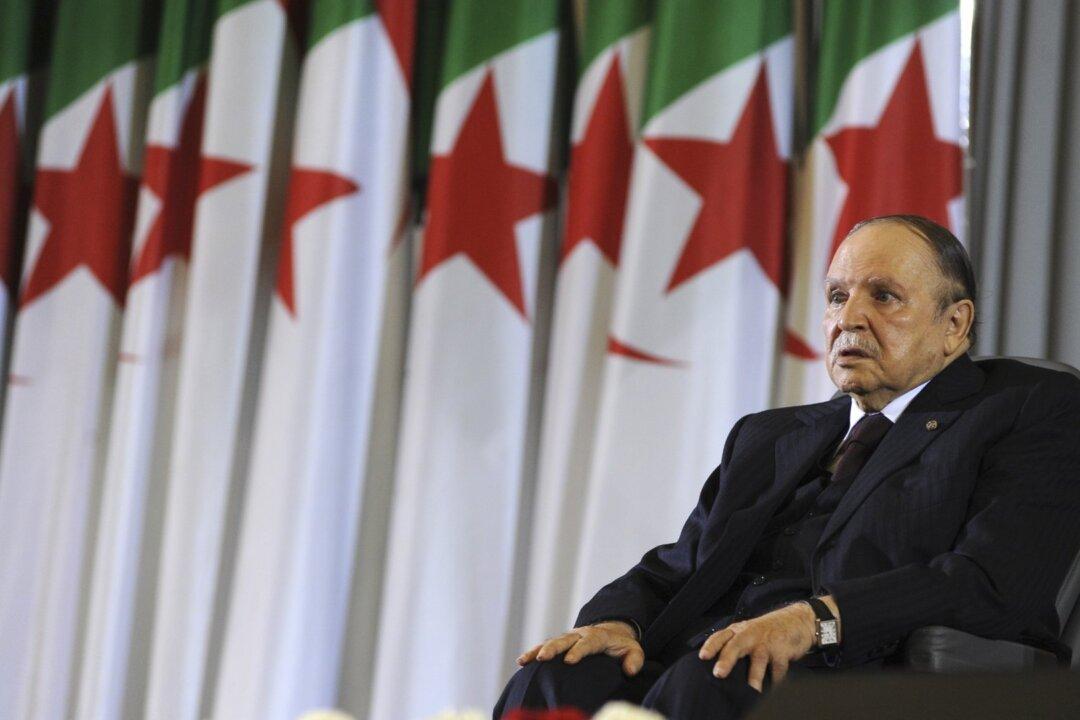ALGIERS—Algeria’s interim president, in a televised speech to the nation, promised on April 9 to organize free elections within 90 days after weeks of protests that led to the resignation of leader Abdelaziz Bouteflika after 20 years in power.
Abdelkader Bensalah was rejected by demonstrators right after he was named by parliament to take charge during a volatile transition period after decades of autocratic rule.





